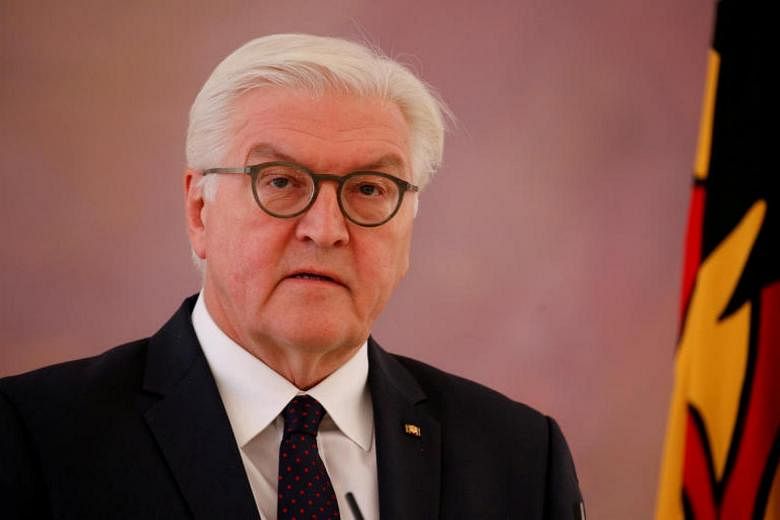GERMANY - German President Frank-Walter Steinmeier has concluded his round of consultations with the country's political party bosses, in a last-ditch effort to encourage their cooperation on the formation of Germany's new government.
But although President Steinmeier appears to have succeeded in persuading top politicians to resume talking, chances are no better than even that such talks will lead to a formation of a new German coalition government.
The country, which has long been regarded as Europe's model for stability and political maturity, now looks decidedly wobbly.
The problem stems from the latest federal general elections, held in September, which produced an inconclusive result. The ruling Christian Democratic Union led by Chancellor Angela Merkel maintained its top position with the electorate, but attracted only 33 per cent of the vote, its worst result in more than half a century. The left-leaning Socialist (SPD) main opposition party got only 20.5 per cent of the ballots, its worst result in almost a century.
The far-right Alternative for Germany movement rose from nowhere to be the third-biggest party with 12.6 per cent of the vote.
No fewer than six parties are now represented in Parliament, double the usual number. It was clear soon after ballots closed in September that forming the next German government would not be easy, though nobody predicted that it would be as difficult as it now proves to be.
Chancellor Merkel's initial preference was to form a coalition government between her party and the Free Democrats, a liberal, free-market centrist formation known by its abbreviation FDP, plus the Greens.
But after two months of talks, the FDP abandoned the negotiations, considerably narrowing Dr Merkel's options to form a government.
She can either opt for new elections, try to govern as head of a minority government in the hope that other parties will not harass her government too often, or create a "grand coalition" with the SPD.
Dr Merkel says she is not interested in forming a minority government and that, if the impasse continues, "new elections are the better way".
But this is just bluster because, as she knows only too well, the obstacles to new elections remain considerable. First is the German Constitution, which frowns on early elections. Unless President Steinmeier agrees to new elections - which is highly unlikely - fresh ballots can take place only if Dr Merkel loses three consecutive confidence votes in Parliament, so she would have to organise her own dismissal by generating parliamentary votes, not exactly an edifying political spectacle.
And there is no guarantee that a new ballot would produce very different results.
Governing as a minority government would also be a recipe for weak government. Which leaves the only other option: a grand coalition with the Socialist SPD.
The SPD, which took part in a coalition with Dr Merkel in the outgoing Parliament, would prefer to remain on the opposition benches to rebuild its credibility with the electorate.
But Foreign Minister Sigmar Gabriel, who only earlier this year resigned from the leadership of the SPD to support Dr Merkel's outgoing administration, favours a resumed grand coalition. So do many SPD legislators, who fear new elections because the party has no funds, and no prospects; opinion polls indicate that, if elections were held today, the SPD, Germany's oldest political party, would sink even lower into oblivion.
President Steinmeier, himself a former senior SPD politician, will continue to lean on his old party to accept a power-sharing deal, arguing this is not only for Germany's own sake, but for the sake of stability in Europe.
Yet whichever way the talks go, one conclusion is already inescapable: Chancellor Merkel might have won a rare third consecutive mandate, but her stature is much diminished, and her era is rapidly drawing to a close.


